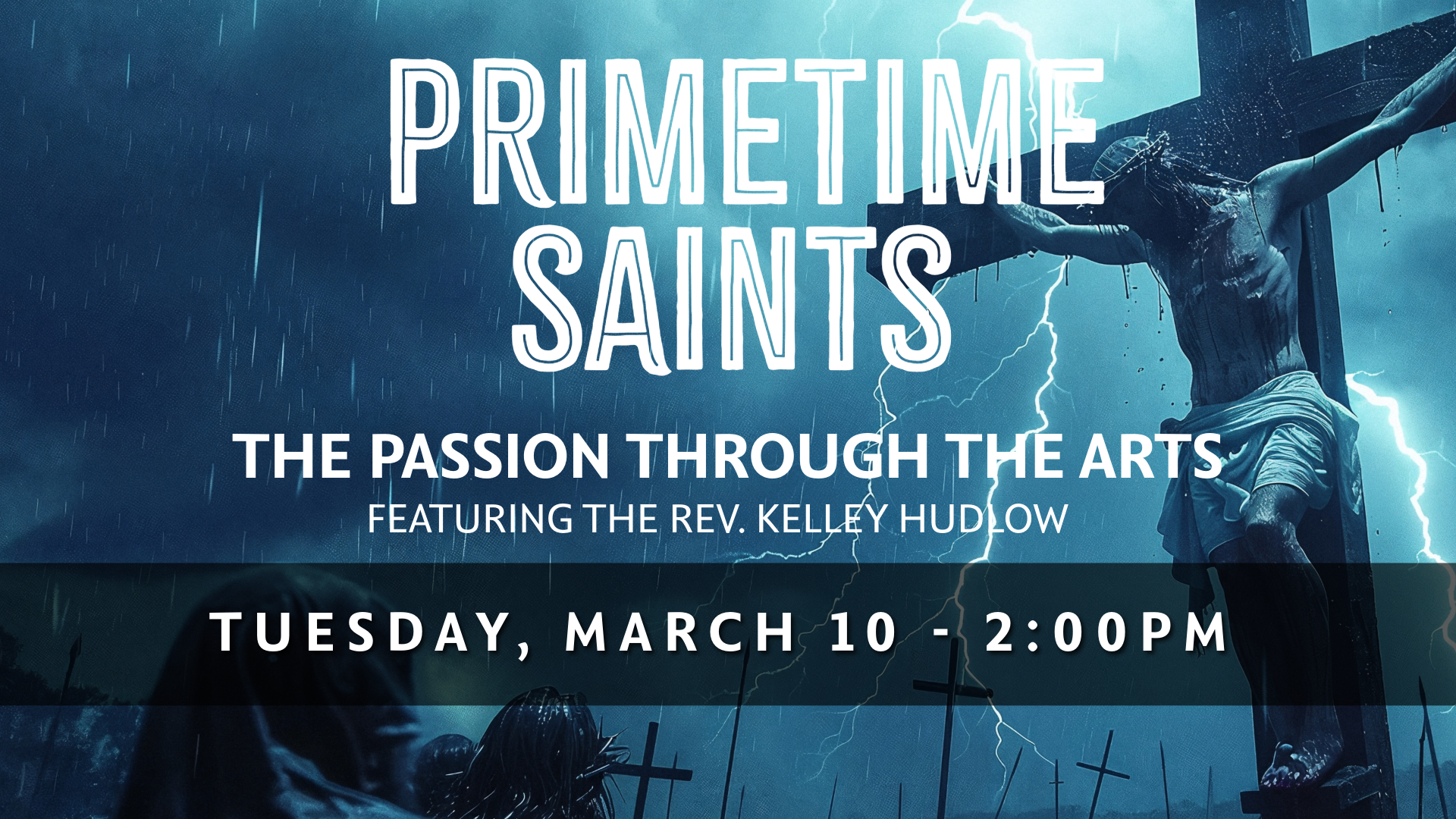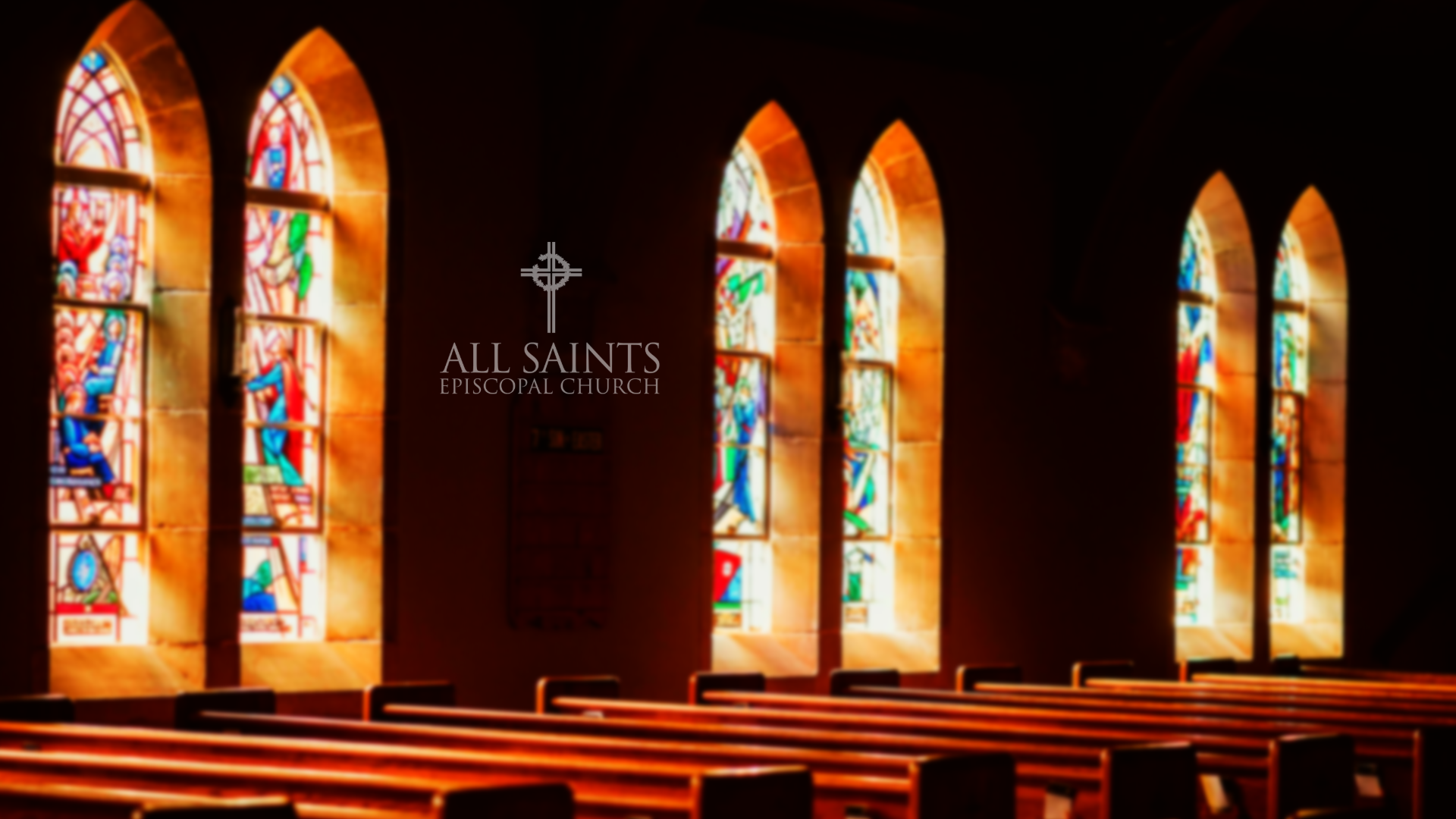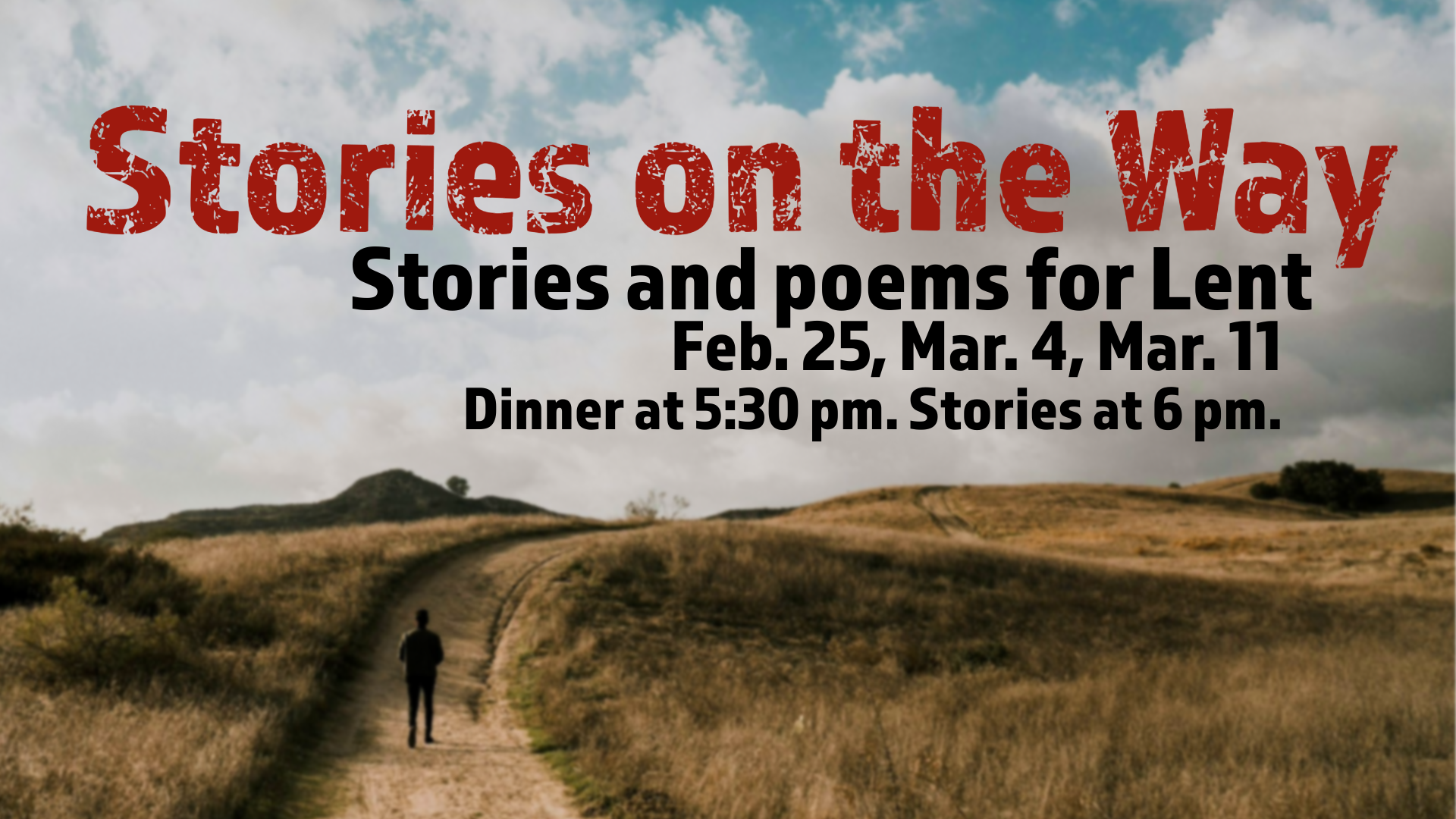What do we do with our anger?
The Rev. Charles Youngson
June 26, 2022 3rd Sunday after Pentecost
Proper 8: Galatians 5:1, 13-25, Luke 9:51-62
“What do we do with our anger?”
Believe it or not, 21 years ago, I stood in this same pulpit and preached on these same
readings. I was a mere lad of 26 then, not even out of seminary. I was staying with my parents
for the summer in a little bungalow across the traffic circle from All Saints so that I could do
Clinical Pastoral Education at UAB Hospital. In CPE you’re basically a chaplain intern for 10
weeks. A lady in the class ahead of me at Sewanee had encouraged me to come to UAB. She
had done the same program the summer before and said it wasn’t too bad. Her name was
Glenda Curry, and she lied. No, in reality CPE is the best experience you never want to repeat.
Back then, neither Glenda nor I had any notion that we would one day serve as priests at All
Saints. So, in preparation to preach this week, I went back and read my sermon from 2001.
And all I can say is, “I’m sorry.” Just kidding, it wasn’t too bad, but I’m not going to re-preach it
for you either.
Then as now, I have to laugh at James and John’s question in the Gospel reading: “Lord,
do you want us to command fire to come down from heaven and consume them?” Now what
kind of question is that? Jesus gets the cold shoulder in a Samaritan village, and now James and
John want God burn down the village and everyone in it. First, do they really believe they have
the power to command fire to rain down from heaven? And second, after all the time they’ve
spent with Jesus, do they really believe he will approve of their idea? No wonder Luke tells us
Jesus rebuked them. James and John were nicknamed the “sons of thunder,” maybe because
of this very incident. Or maybe they were just known to be hot-headed. But their question
does not come completely out of left field. They were remembering something that Elijah the
prophet once did. Elijah had called down fire upon King Ahazaiah’s soldiers, who had come to
capture him. Perhaps it was not his best moment, but it was definitely a memorable one. Now
James and John want to try their hand at this kind of thing. After all, weren’t they students of a
prophet even more powerful than Elijah? The disciples are furious because showing hospitality
to strangers was a chief virtue in that culture. It could even be a matter of life or death. But
Jesus doesn’t give in to their desire for revenge. He simply moves on to another village.
It's interesting to see how Jesus responds to the disciples’ anger because it certainly
seems that American society is getting angrier. I came across a helpful article from a couple of
summers ago about this subject. In it, Raymond Novaco, a psychology professor at the
University of California at Irvine refers to our media-saturated culture as an “anger incubator.”
Our media seems to feed on anger along with all the other vices on the list that Paul offers us in
the reading from Galatians. In addition to the usual subjects of fornication and drunkenness,
Paul lists enmities, strife, jealousy, anger, quarrels, dissensions, and factions as “works of the
flesh.” All these terms describe the many ways we push each other away.
Angry conflict among humans is nothing new, but its effects are still destructive. We
can blame the media all we want, but at some point, we must admit that they’re just giving us
what we want. We must get something out of feeling angry on some level. Is it a sense of
control in a chaotic and changing world? Do we feel a sort of high from being righteously
indignant? Does anger help mask other emotions like fear or sadness.
Now, there are things in our world for which we can be legitimately angry. There are
times when even Jesus expressed anger toward injustice. Anger is a normal and natural
emotion. It is neither good nor bad. It is one of the ways our body prepares us to respond to a
threat. How can we not feel anger that our children can’t go to school without the fear of
never returning home again? How can we not feel angry that senior citizens at a church potluck
are shot to death for offering hospitality to a desperate man? Something is clearly wrong in our
society. There seems to be a lot of unhealed trauma, too much isolation, too much fascination
with guns and violence, too much bitterness and resentment and all the things on Paul’s list of
vices. What can we do as Christians to bring Christ’s healing to this world? I believe we start
with the only person we can change—ourselves. Then we focus on what we can do as a
community of faith.
What do we do with our anger? We know what doesn’t work. It doesn’t work to deny it
or stuff it down inside. It’s not helpful to spread it to others. And we certainly don’t want to act
out our anger in ways that harm others or ourselves. How often do we hold onto to our anger,
ruminate on it, and then turn it into a story about how the world is against us?
In the article I mentioned earlier, Dr. Novaco offers three antidotes to anger that all
begin with the letter A. And maybe not so surprisingly, they are common practices in the
church. To avoid holding on to anger, he recommends practicing appreciation, affiliation, and
aspiration. Appreciation means paying attention to what is going well in your life, what brings
you fulfillment and joy. In the church we call that gratitude. Affiliation is about nurturing
relationships and a sense of belonging. In the church we call that fellowship or community.
And he says, “Aspiration means striving to accomplish things that are bigger than yourself or
that serve other people.”1 In the church we call that ministry or service. All are ways of loving
your neighbor as yourself. And loving yourself is and taking care of yourself is important.
Appreciation, affiliation, and aspiration. It may not be a complete answer to our anger
problem, but it’s a good start.
It's tragic to me that three pillars of St. Stephen’s Church, Jane and Bart and Sharon,
were killed for doing the very thing that Jesus teaches us to do, offering hospitality to a
dispirited man. And it’s tragic to me that Mr. Smith, was so close to finding the very thing he
needed. Something, or more accurately, someone, was drawing him toward that community.
He would show up at the potluck. He would show up at church. But apparently, he would sit
alone. We don’t know why he did what he did, but he was so close to finding a loving, Spiritfilled
community, one that might have brought him healing and prevented him from turning his
anger into violence against innocent people. But it’s sort of like going to the gym and never
actually exercising. Simply being in the building is not enough. Showing up may be half the
battle, but we still have to participate in our own healing. We still have to let down our walls
enough to let God’s healing love come in. God’s love can change us, but God won’t force us to
change.
So, what do we do with our anger? We need to feel our anger and listen to what it is
telling us. Then we need to give it to God. If we hold onto it, it will harm our bodies and harm
our relationships. But if we give our anger back to God, God can transform that energy into
something productive. Some of the most powerful changes in our society have come about
because Christian people allowed God to turn their anger at injustice into a peaceful, positive
force for good. That kind of change is not easy. And it doesn’t happen in isolation. It happens
in a community empowered by the Holy Spirit. It happens in the church when we embody the
fruits of the Spirit: love, joy, peace, patience, kindness, generosity, faithfulness, gentleness, and
self-control. These are the virtues that change the world. If you can’t remember them, they
are etched in the windows behind you that separate the nave and the narthex. We are
reminded of those virtues when we come to worship. But more importantly we are reminded
of them as we head into the world. None of us is immune to vices on Paul’s “bad” list. But
neither is anyone incapable of living out the virtues on Paul’s “good” list. In fact, the Spirit is
always at work in every person, in the life of the sinner and the saint. The Spirit is always
forming us into people who can enjoy the good things in life, the fruit of the Spirit: love, joy,
peace, patience, kindness, generosity, faithfulness, gentleness, and self-control. I still believe
the church is where the Spirit does its best work, not a church building but a church community
focused on following Christ’s way of love. It is in service to Christ’s way, that we find true
freedom.
More Announcements







